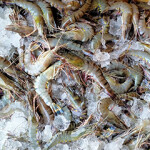Chile’s fishing industry involved in presidential race scandal

A journalistic investigation carried out by CNN Chile and Chilevisión has found that current Chilean presidential candidate Sebastián Sichel financed a failed campaign for congress in 2009 with contributions from fishing companies, most of which were delivered irregularly.
The investigation uncovered a number of lists detailing contributions of up to CLP 30 million (USD 37,000, EUR 32,000) for Sichel’s candidacy under the label "PES" – short for “pesqueros,” or fishing companies. A total of 12 contributions came from commercial fishing companies, identified by receipts for services which were never provided – a procedure that is considered irregular but which has been used in many campaigns in Chile. The process allowed candidates to receive funds outside the limits set by the country’s election service, Servel.
Companies named in the investigation include Chile's industrial fishing association (Asipes), Pesquera Sur Austral, Empresa de Desarrollo Pesquero de Chile, Pesquera San José, El Golfo, Bahía Coronel, Pesquera Food Corp, and Alimentos Marinos. The intermediary named in nine of the 12 donations was Luis Felipe Moncada, a businessman who led Asipes between 1990 and 2016, at which time he left office over a scandal having to do with illegal political donations. Another three companies – Pesquera Itata, Pesquera Bio Bio, and Camanchaca – were also identified on the list, but their donations were legally registered with Servel.
The journalistic report was released 12 October and led to the resignation of Cristóbal Acevedo, a senior advisor to Sichel and general coordinator of his campaign. During his campaign, Sichel has underlined the need to provide more transparency on the relationship between economic interests and politicians, saying that corporations should not be allowed to make political donations.
Following the broadcast of the report, Sichel – who for several weeks was second in the polls, but who has seen his favorability ratings wane recently – issued a seven-paragraph public statement in which he "categorically" rejected the accusation, denouncing a "political articulated operation" against him.
"I never had any knowledge of any of what I am being accused of, and I never asked for any contributions,” he said. “The reports [of financial contributions] to the electoral service were accepted without any observations."
Sichel called the report a “crude” effort to discredit him.
"All kinds of strategies have been used to discredit me, going to the extreme of using my personal life, my professional life, and now my political life in mounting this operation,” he said. “They tried to use my stepfather to question my life history. They have questioned my professional work as a lawyer, lying about my duties, and now they bring to light a record that is nothing more than a crude attempt to damage my honor."
The incident is not the first time that the fishing industry has been involved in questionable behavior when it comes to financing politicians.
At the end of 2020, two former members of Chile's congress were found guilty in a bribery case involving the Chilean commercial fishing company Corpesca, which illegally paid them to advance its own interests in as a new fishing law was being debated. The law, approved in 2013, allocated 70 percent of the fishing resource stocks to the commercial sector. Corpesca, owned by the Chilean commercial group Angelini, produces 25 percent of the fishmeal manufactured in Chile and has 1,125 employees.
Francisco Mujica, Corpesca’s former general manager, resigned from the company in 2013 over the scandal, and in 2016 he was charged with bribery and tax fraud in the Fourth Guarantee Court of Santiago.
Currently, seven candidates are involved in the presidential election in Chile. The country will hold elections on 21 November, with runoff elections scheduled for 19 December.
The latest polls have confirmed the continued lead of center-left candidate Gabriel Boric, who a recent poll shows has the support of 21 percent of those expecting to vote, down one point from the previous poll. He is followed by right-wing candidate José Antonio Kast, who had 18 percent support in the poll, a 3 percent increase. Centrist candidate Yasna Provoste had 13 percent approval in the poll, followed by Sichel at 10 percent.
Boric, the 35-year-old frontrunner, got an early start in politics as a university student leader and was then elected a member of Chile’s Chamber of Deputies. He has sought to position himself as a representative of the hopes for change of those who initiated social protests in Chile beginning in October 2019 – and which eventually led the government to accede to the rewriting of the country’s constitution.
Boric’s ascent is part of a broader shift to the left across Latin America and “is rattling international corporations and investment firms, which have long favored Chile as perhaps the most market-friendly developing economy in the world,” Bloomberg reported.
“If Chile was the birthplace of neoliberalism, it will also be its grave,” Boric is known to have said on more than one occasion.
Sichel is seen as representing a continuation of the current government, while Kast, who has been compared to Donald Trump, would represent a turn to the right.
Photo courtesy of Mediabanco Agencia/Wikimedia Commons.






Share